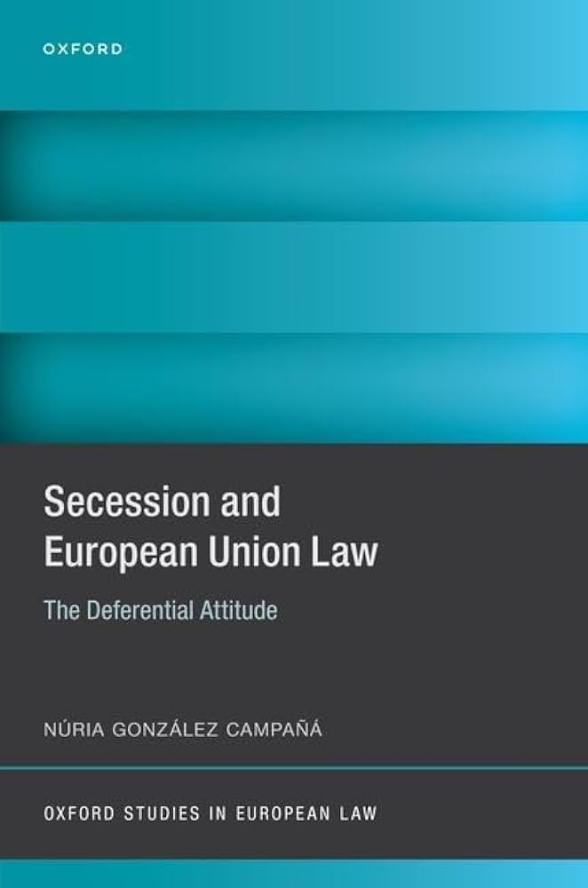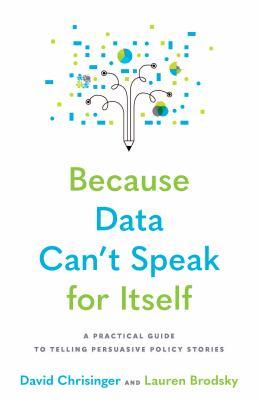-

Hear from Professor Monica Toft
Learn how Professor Monica Toft is shaping the study of global affairs and diplomacy at Fletcher.
Hear from Prof. Toft -

Explore Fletcher academics in action
Fletcher Features offers insights, innovation, stories and expertise by scholars.
Get global insights -
Get application tips right from the source
Learn tips, tricks, and behind-the-scenes insights on applying to Fletcher from our admissions counselors.
Hear from Admissions -

Research that the world is talking about
Stay up to date on the latest research, innovation, and thought leadership from our newsroom.
Stay informed -
Meet Fletcherites and their stories
Get to know our vibrant community through news stories highlighting faculty, students, and alumni.
Meet Fletcherites -

Forge your future after Fletcher
Watch to see how Fletcher prepares global thinkers for success across industries.
See the impact -

Global insights and expertise, on demand.
Need a global affairs expert for a timely and insightful take? Fletcher faculty are available for media inquiries.
Get in Touch
2024 Mixed Media List
Winter 2024 List
NONFICTION

Secession and European Union Law: The Deferential Attitude
Núria González Campañá, F10, presents a novel approach to secession through the lens of EU law by utilizing topical case studies to consider how the EU should respond to secessionist attempts. The book displays an original combination of scholarly elements: theory, empirical evidence, methods, and argumentation.

Routledge Handbook of Arts and Global Development
Although arts play a central role in human development, and in the health and well-being of individuals and communities, few people have attempted to comprehensively explore arts practice as global development. This handbook, co-edited by Patrick Kabanda, F13, and four other co-editors, provides a theoretical framework for exploring arts and global development, before surveying a comprehensive range of art forms and development practices to explore the potential of the arts to strategically and beneficially contribute to more just and equitable conditions for communities across the globe. Stretching across the arts, the book covers topics as diverse as health, education, peacebuilding, livelihoods, sustainability, activism, and arts as research method in programming.

Beyond the Gavel: Navigating the Complexities of the United Nations Security Council
Sang Yeob Kim, F17, provides aglimpse into the strengths and weaknesses of the Security Council, including the council's structure, relationships, and decision-making process. The book considers the history of the council and its contentious privilege, while using case studies to highlight its triumphs as well as failures in maintaining global peace. Sang Yeob also offers ways the council could adapt to the world’s new challenges.

Commercial Agreements: Principles and Practice
Developing a unique conceptual framework to view commercial agreements, Adjunct Professor and Managing Director of Acton Law LLC Jeremy Leong, F09, combines commercial nous (common sense) with theory and doctrine to produce practical strategies for negotiating, drafting, advising on, and litigating such agreements. Using examples from Singapore jurisprudence to demonstrate how universal principles can be applied in diverse jurisdictional settings, the book examines the cultural and commercial contexts that underpin a multitude of business agreements—such as those relating to the supply of goods, distribution, and franchising—and illustrates how nuances of language are essential in the interpretation and translation of contracts.

10 Moral Questions: How to Design Tech & AI Responsibly
Shannon Mullen O'Keefe, F00, has created a guidebook for using tech and AI responsibly, co-written with members of QCollective, of which Shannon is a founding member. Launched at the World Economic Forum in Davos, the book offers a unique framework. The authors suggest 10 provocative questions and five values, inviting readers into the conversation about the promises for and consequences of AI and other technology. They underline the necessity for a holistic, integrated, and ethical approach to AI and tech in an interconnected world, offering a commonsense view of morality that invites everyone to think beyond business and economic interests to societal impacts. The book includes research and a chapter on the global status of Responsible AI contributed by experts from the Boston Consulting Group.

Engaging with Human Rights: How Subnational Actors Use Human Rights Treaties in Policy Processes
Making human rights a reality requires that various types of domestic actors take measures, which is often demanding, all the more so in federal systems. Evelyne Schmid, F08, and four co-authors write that an important part is played at the subnational level, with repeated back-and-forth between and within levels of governance rather than a “top-down” trajectory. The authors interviewed bureaucrats, officials, members of parliament, and leaders of NGOs about two international treaties, one on disability and one on violence against women. The book identifies mechanisms, patterns, and conditions facilitating the engagement of authorities with human rights obligations, even when the federal level remains passive.

Training for Victory: U.S. Special Forces Advisory Missions from El Salvador to Afghanistan
The U.S. spent billions in Iraq and Afghanistan constructing security forces, only to see those armies collapse quickly after the American withdrawal. But amid the catastrophic military disaster were pockets of success. Author Frank K. Sobchak, FG22, explores security force assistance across five case studies, examining why smaller units were successful while the larger missions failed disastrously and what factors were most critical for U.S. Special Forces units to build capable partners like the Iraqi Special Operations Forces and Afghan commando units.

Civil Wars: A Very Short Introduction
Academic Dean, Professor of International Politics, and Director of the Center for Strategic Studies at The Fletcher School Monica Duffy Toft’s new book, Civil Wars: A Very Short Introduction, examines the factors that affect the onset, fighting, and termination of civil wars from a historical perspective. She provides an overview of the key causes and consequences of civil wars and discusses how civil wars have changed and continue to change. Academic Dean Toft discussed the book in an interview at Fletcher in December.

European Unification: The Adventures of a Dream
The idea of European unification resurfaced from time to time over the centuries. After World War II, asking the question "How can this not happen again?" had become relentless. The effort that began with the ultimate goal of political unification led to the creation of the Coal and Steel Community, the European Economic Community, and then the current European Union. Not yet, however, in unification. Dimitris Tsiodras, F09, writes about the disputes within the EU from its beginning and during pivotal moments, which determined and still influence the common course. These disputes include ones stemming from different perceptions of the common currency, defense unification, German reunification, crisis management in the Eurozone, the role of the EU in the world, and responses to new security challenges.
FILM

Eat Bitter: Striving for a Better Life in the Central African Republic
Co-directed by Pascale Appora-Gnekindy and Ningyi Sun, F19, Eat Bitter: Striving for a Better Life in the Central African Republic brings light to the Central African Republic, one of Africa’s poorest countries, for the BBC’s Africa Eye. Local sand diver Thomas Boa and Chinese construction manager Jianmin Luan struggle to improve their fortunes. They “eat bitter” today in the hope of a better tomorrow, but with no guarantees about what their futures may hold.
Summer 2024 List
NONFICTION

Atrocity Crimes, Children and International Criminal Courts: Killing Childhood
Professor of the Practice of International Law Cécile Aptel shows how international criminal courts have paid only limited and inconsistent attention to atrocity crimes affecting children. The book elucidates the many, often overlapping structural, legal, financial, and even attitudinal obstacles that have contributed to the international courts’ focus on the experience of adults. Professor Aptel argues that this focus has rendered children almost invisible in the courts. It proposes an agenda to improve this situation, making specific recommendations encompassing the urgent need to further elaborate child-friendly procedures. Professor Aptel also calls for international investigative and prosecutorial strategies to be less adult-centric and broaden the scope of crimes against children beyond the focus on child soldiers.

Because Data Can't Speak for Itself: A Practical Guide to Telling Persuasive Policy Stories
Co-authors and accomplished educators Lauren Brodsky, F04, FG10, and David Chrisinger reveal the parts and functions of effective data-driven stories and explain myriad ways to turn your data dump into a narrative that can inform, persuade, and inspire action. Compelling and concise, this fast-paced tour of success stories—and several failures—includes examples on topics such as COVID-19, public diplomacy, and criminal justice. Chrisinger and Brodsky's easy-to-apply tool kit will turn anyone into an effective and persuasive evidence-based writer. Aimed at policy analysts, politicians, journalists, teachers, and business leaders, Because Data Can't Speak for Itself will transform the way you communicate ideas.

The World Central Kitchen Cookbook: Feeding Humanity, Feeding Hope
Sam Chapple-Sokol, F12, and José Andrés, founder of World Central Kitchen, co-wrote a captivating collection of stories and recipes from renowned chefs, local cooks, and celebrity friends. It was the recipient of the 2024 James Beard Book Award–International. The recipes are inspired by the many places World Central Kitchen has cooked following disasters as well as inspirational narratives from the chefs and volunteers on the frontlines. All proceeds from The World Central Kitchen Cookbook support World Central Kitchen’s emergency response efforts.

Euroshock: How the Largest Debt Restructuring in History Helped Save Greece and Preserve the Eurozone
In the fall of 2009, the world economy was beginning to recover from the global financial crisis that had shaken global markets and had led to a sharp recession. At the same time, Europe was entering a new phase of economic stress. Charles Dallara, F75, FG86, takes us on the restructuring of Greece’s debt in 2012—the largest restructuring in history—and how the Eurozone was stabilized and Greece was saved from exit from the Eurozone and economic calamity. Urgent negotiations were launched to pull Greece and Europe back from the brink of disaster. This is the inside story of those negotiations.

Free Speech and Turbulent Freedom: The Dangerous Allure of Censorship in the Digital Era
Americans’ free speech is threatened today as never before by a massive censorship machine, forged by colluding social media platforms and national security agencies, and fueled by intense animosities and moral absolutism redolent of antagonisms that sparked the Civil War. Michael Glennon, professor of constitutional and international law, shares how many Americans caught up in today’s frenzy doubt the need for freedom of speech. Most are unaware that the modern First Amendment was given life by a young soldier in that war, Oliver Wendell Holmes Jr., who survived to recognize the inevitable link between certitude and violence and to become the most influential Supreme Court justice of the era, shaping a First Amendment grounded on a lively marketplace of ideas as the surest guarantor of social stability. Professor Glennon discussed the book in an interview in Tufts Now.

International Law, Eighth Edition
Duncan B. Hollis, F95, Chimène I. Keitner, and Allen S. Weiner provide students with a foundational understanding of international law for those required to confront legal problems across borders, including treaties, customary international law, jurisdiction, and the UN system. The textbook offers a comprehensive treatment of contemporary international law, including key recent developments in the field, and provides comprehensive coverage of foundational international law questions faced by practitioners, including the nature and sources of international law, the subjects of international law (states and international organizations), and the jurisdictional powers and immunities of states.

The Struggle for Taiwan: A History of America, China, and the Island Caught Between
In The Struggle for Taiwan, Sulmaan Wasif Khan, associate professor of international history and Chinese foreign relations, offers the first comprehensive history of the triangular relationship between the United States, China, and Taiwan, exploring America’s ambivalent commitment to Taiwan’s defense, China’s bitterness about the separation, and Taiwan’s impressive transformation into a flourishing democracy. War is not inevitable, Khan shows, but to avoid it, decisionmakers must heed the lessons of the past. From the White Terror to the Taiwan Straits Crises, from the normalization of Sino-American relations to Trump-era rising tensions, this book charts the paths to our present predicament to show what futures might be possible. Professor Khan discussed the book in an interview in Tufts Now.

Good Victims: The Political as a Feminist Question
As of 2023, over nine million Colombians have secured official recognition as victims of an armed conflict that has lasted decades. The category of “victim” is not a mere description of having suffered harm, but a political status and a potential site of power. In Good Victims, Roxani Krystalli, F14, FG20, investigates the politics of victimhood as a feminist question. Based on in-depth engagement in Colombia over the course of a decade, Krystalli argues for the possibilities of politics through, rather than in opposition to, the status of “victim.” Encompassing acts of care, agency, and haunting, the politics of victimhood entangle people who identify as victims, researchers, and transitional justice professionals. Krystalli shows how victimhood becomes a pillar of reimagining the state in the wake of war, and of bringing a vision of that state into being through bureaucratic encounters.

From Brooklyn Neighborhood To International Monetary Fund: The Smiles Along The Way
Jonathan V. Levin, F51, recalls the unlikely steps that carried him from the 50th Street block in Brooklyn to the army, The Stars and Stripes, which is a daily American military newspaper, graduate school, a Fulbright scholarship in France, the Harvard Law School International Tax Program, the Federal Reserve Bank of New York, the U. S. Securities and Exchange Commission, and the International Monetary Fund. Sparkling along the path was a collection of odd and humorous incidents that enlivened the years and are recounted in this book.

Come to the Feast of Blessings: And Discover God as the Life of the Party!
Even long after becoming a Christian, Pedro Moren, F87, still kept doing things he knew he should not, he says. He did not have enough love for people, not even for himself. All that changed, though, when he arrived at a different understanding of God, which allowed him to receive God’s love for him, and thus love himself and others, he says. In this book, Moren shares meditations on how he made peace with God, peace with himself, and peace with others. His prayer is that it will happen to you too, and you will find peace.

The Institution Builder’s Toolbox: Strategies for Negotiating Change
In our work and private lives, we’re required to build new institutions or renovate old ones, from launching a business in your home to creating a new corporate division at work, from establishing a local charter school to organizing an athletic club with friends. Drawing on his six-decade career of building institutions around the world, Professor emeritus Jeswald W. Salacuse's book will guide you through the challenges of institution building, from articulating the recognized vision to securing the resources to make it happen.

Outspoken: My Fight for Freedom and Human Rights in Afghanistan
Visiting Scholar Dr. Sima Samar has been fighting for equality and justice for most of her life. Born into a polygamous family, she learned early that girls had inferior status, and she had to agree to an arranged marriage if she wanted to go to university. By the time she was in medical school, she had a son, Ali, and had become a revolutionary. After her husband was disappeared by the pro-Russian regime, she escaped. With her son and medical degree, she took off into the rural areas to treat people who had never had medical help before. Sima's wide-ranging experiences both in her home country and on the world stage have given her inside access to the dishonesty, the collusion, the corruption, the self-serving leaders, and the hijacking of religion. Sima was named Afghanistan’s first minister of women’s affairs and deputy prime minister of the Afghanistan Interim Administration in 2001 and chaired the Afghanistan Independent Human Rights Commission from July 2002 to 2019. With stories that are at times poignant, at times terrifying, and are inspiring as well as disheartening, Sima provides an unparalleled view of Afghanistan’s past and its present. Samar discussed the book in an interview in Tufts Now.

Kofi Annan and Global Leadership at the United Nations
Abiodun Williams, professor of the practice of international politics, explores how Kofi Annan conceived his role as Secretary-General of the United Nations and exercised global leadership during a turbulent period in world affairs. It sheds light on the importance of leadership for the performance of a global institution like the UN. It discusses the challenges he faced during his tenure from 1997 to 2006 and how he dealt with them. Professor Williams recounts how he used the bully pulpit to articulate a global agenda, speak to a global public, and shape norms. The book charts Annan’s ambitious efforts to reform and adapt the UN to the needs of the twenty-first century. Professor Williams discussed the book in an interview in Tufts Now.
FICTION

2054
From the acclaimed authors retired Admiral James Stavridis, USN, F83, FG84, H20, and Elliot Ackerman, A02, F03, of the runaway New York Times bestseller 2034 comes another explosive work of speculative fiction set twenty years further in the future, at a moment when a radical leap forward in artificial intelligence combines with America’s violent partisan divide to create an existential threat to the country and the world. It is twenty years after the catastrophic war between the United States and China that brought down the old American political order. A new party has emerged in the U.S., one that has held power for over a decade. Efforts to cement its grip have resulted in mounting violent resistance. A coverup ensues, conspiracy theories abound, and the country descends into a new type of civil war. Stavridis and Ackerman discussed the book in an interview in Tufts Now.
FILM

Moynihan
Moynihan premiered March 29, 2024, on PBS. The second episode of the 38th season of American Masters was focused on the life and legacy of former U.S. Senator and Diplomat Daniel Patrick Moynihan, A48, F49, FG61, H68. Going beyond the Moynihan Report, President Joe Biden, Ta-Nehisi Coates and others reflect on his decades-long fight to end national poverty. Watch here.

